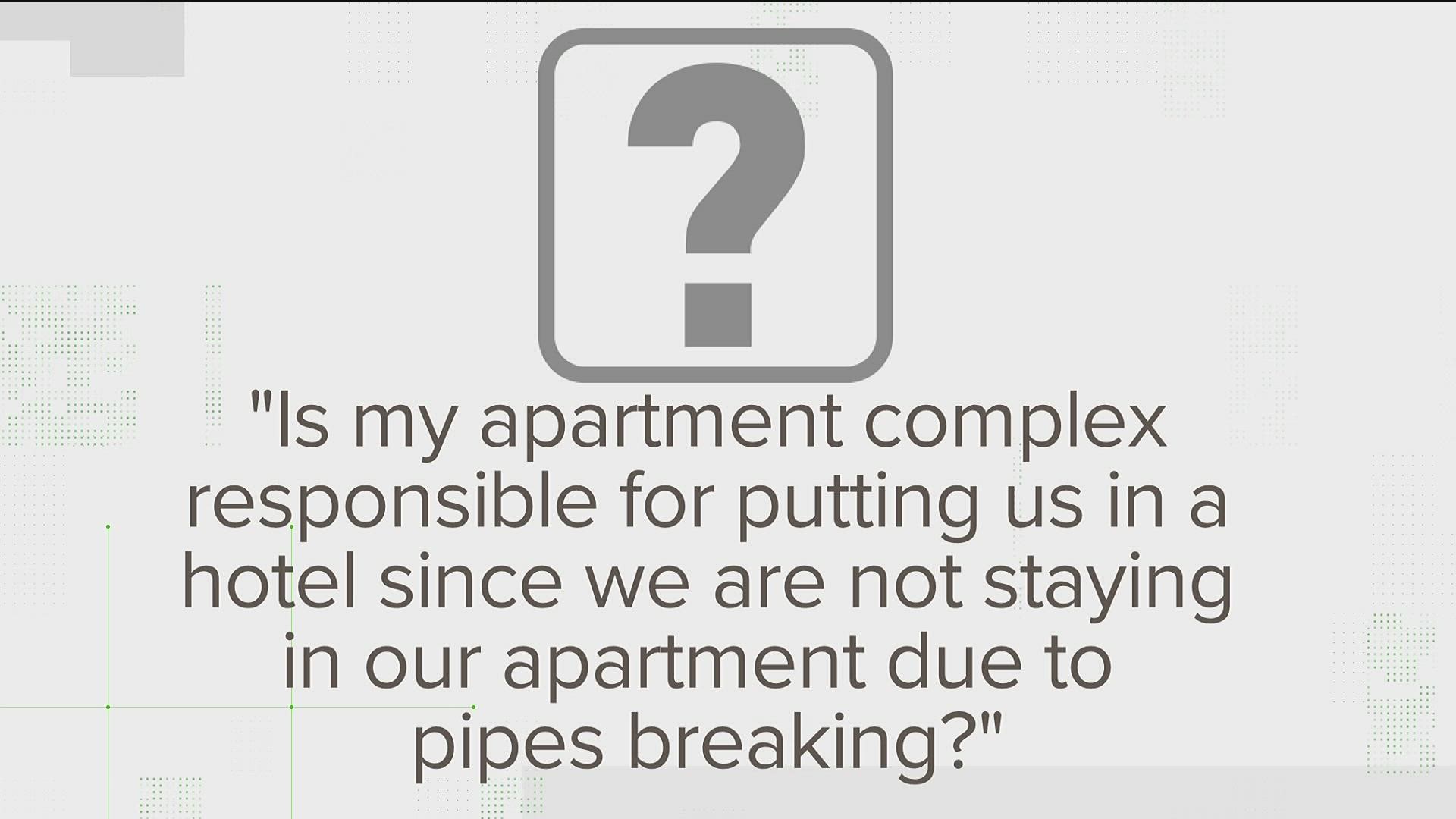ATLANTA — Many Georgians had pipes burst and flood their apartments or houses over Christmas weekend following a brutal blast of arctic weather. Days later, some residents don't have heat or water.
Despite living without essentials during below-freezing temperatures, renters across metro Atlanta have struggled with the damage caused by cracked pipes and unprecedented leaks. Bedrooms have been left in disarray and buildings have flooded in the wake of frozen pipes reaching their limits. Residences have become uninhabitable with people having to find other accommodations.
It’s left many wondering if there's a way to hold one's landlord or apartment complex responsible for temporary housing.
THE QUESTION
"Is my apartment complex responsible for putting us in a hotel since we are not staying in our apartment due to pipes breaking?"
SOURCES
THE ANSWER
The answer to this question is ultimately subjective.
WHAT WE FOUND
Real estate attorney David Metzger explains if a landlord is responsive and trying to find a solution, they are not responsible for accommodations for tenants.
“It’s kind of a wishy-washy answer so bear with me," Metzger explained. "I would say that the answer is generally no but at some point that will change."
He explained that if a “reasonable amount of time” passes without the landlord taking action, the tenant is able to file a lawsuit.
Then it will be up to a judge to determine if the tenant should get compensation.
“For a tenant to hold a landlord liable for the damage that has happened and being displaced or something like that, the reasonable opportunity to repair the property has to pass," he said.
Metzger said what’s considered a “reasonable amount of time” can be subjective, especially right now, when so many people are in need of plumbers.
“It has not been a good time for anybody to deal with this sort of situation. Every plumber in the city is really stretched, trying to take care of all these jobs. So it's a very fact-dependent question of what is a reasonable response time in terms of getting the property fixed or addressed," he said.
While Georgia law doesn’t specify how much time is “reasonable," the Department of Community Affairs determines that period by the “seriousness of the condition and the nature of the repair."
The department said government agencies don’t have the power to intervene. It also said the courts should handle landlord and tenant disputes.
"If [the landlord is] doing active steps to try, then I think in that circumstance, that the tenant is just in a difficult situation, and the landlord is doing the best they can, their efforts are reasonable, and so they would not be able to be held liable," Metzger said.
That’s why Metzger recommends first speaking with one's landlord to see if there’s a way they could reduce the rent, pause it, or help pay for other accommodations amid repairs.
He said first tenants need to put their landlord on notice, then make sure to make a claim with one's renter's insurance. Tenants have to try to keep the lines of communication going and productive, he advised.
It's verified that if a landlord is being responsive, they are not required to pay for other accommodations.
If they’re not responsive, a judge would have to determine if reasonable time has passed to warrant compensating the tenant.
Metzger also stressed the importance of always telling a landlord when something needs to be repaired the second it is noticed.
He explained the landlord has a duty to repair the property, but they are only responsible if and when the tenant brings this up to them.

